.svg)

.svg)
.svg)
.svg)
.svg)
.svg)
.svg)
.svg)
.svg)


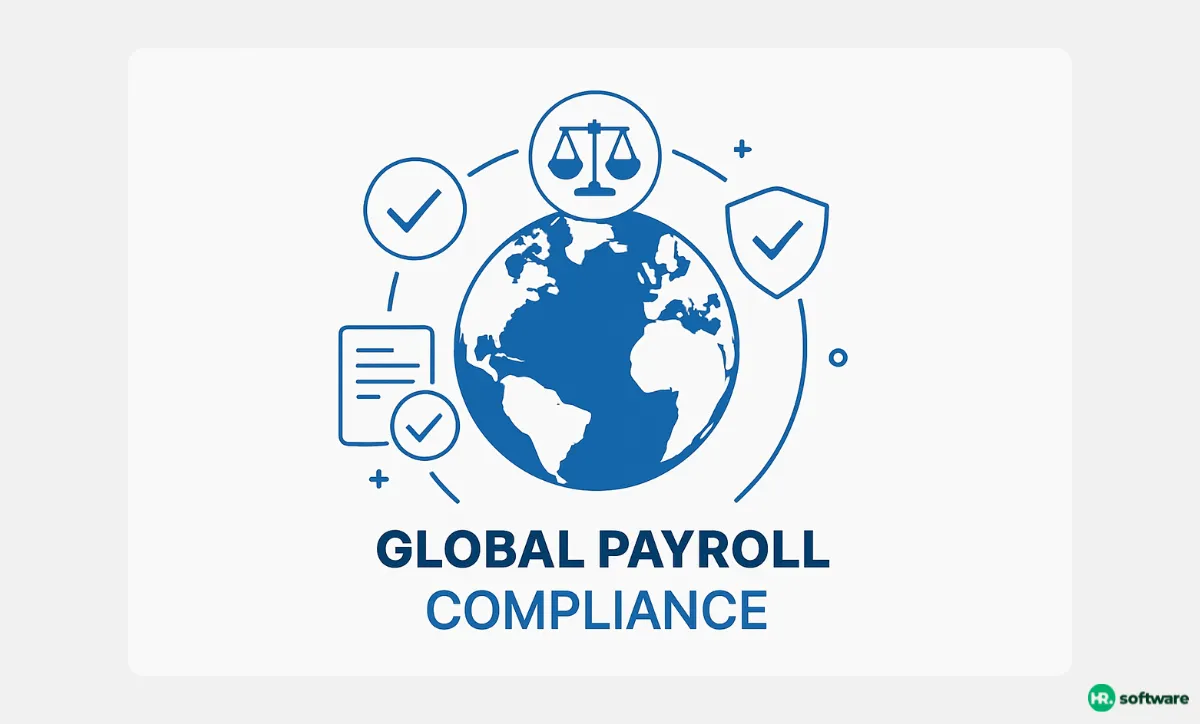
Compliance ensures payroll processes meet legal, tax, and data protection requirements in every country. Without it, companies face fines, misclassification penalties, reporting errors, and loss of employee trust.
Detailed Points:

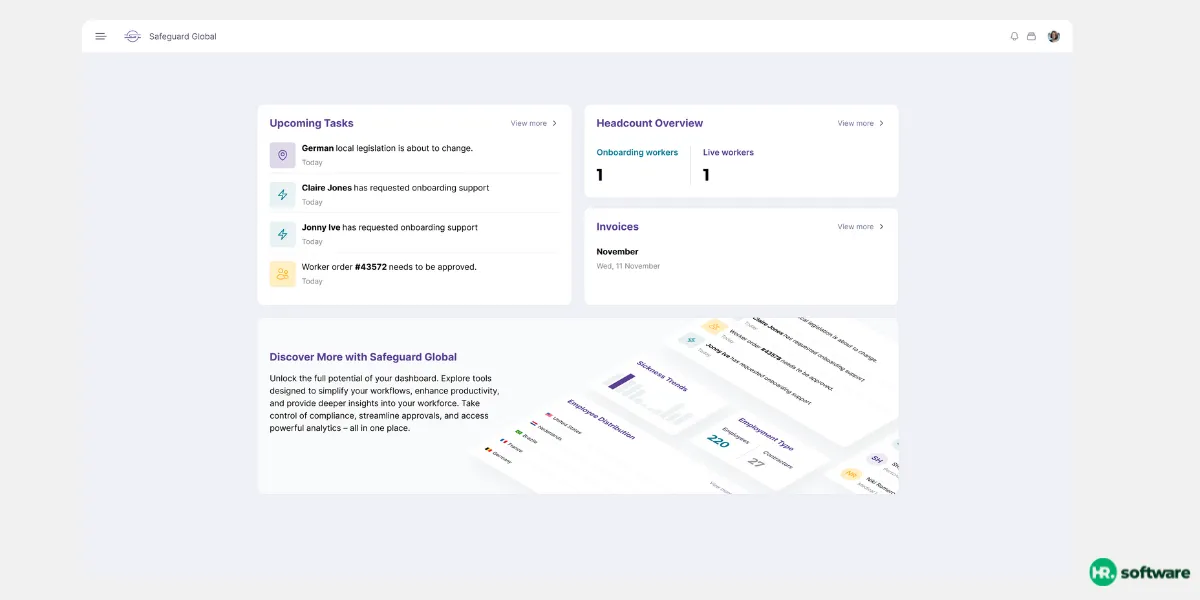
Safeguard Global is a Workforce-as-a-Service provider specializing in compliance-first global expansion. It offers EOR, global payroll, and HR services with a focus on risk mitigation. The platform is built to help enterprises hire, pay, and manage employees across 100+ countries while maintaining adherence to local laws. Safeguard emphasizes compliance with tax and labor codes, classification rules, and entity regulations, making it ideal for businesses scaling quickly.
Pricing: Custom quotes only, generally higher for EOR services. Enterprises can expect premium-tier contracts, often scaling by employee volume and country coverage.

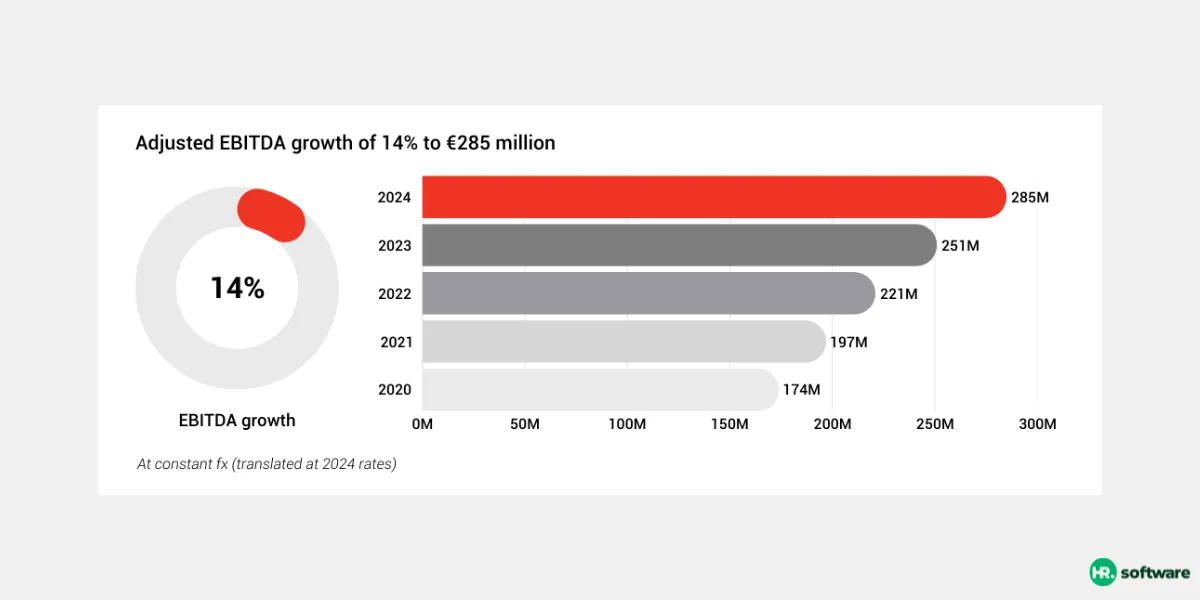
TMF Group is one of the largest payroll and compliance outsourcing providers, operating in over 80 jurisdictions. With decades of experience, it offers deep in-country expertise, supporting statutory filings, governance, and entity management. TMF is trusted by Fortune 500 companies that require high reliability and regulatory compliance across multiple regions. Its strength lies in ensuring organizations meet local obligations while maintaining global governance frameworks.
Pricing: Fully custom enterprise pricing. Contracts are often long-term and bundled with governance or entity services.
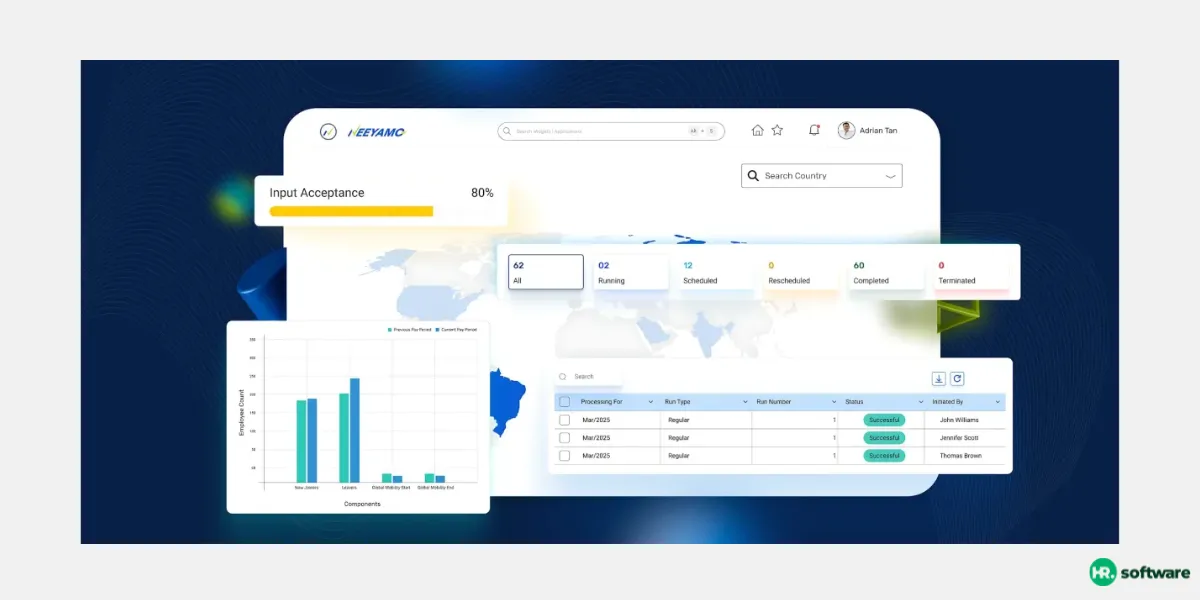
Neeyamo is a global HR and payroll provider specializing in industries with heavy compliance requirements, such as healthcare and financial services. It delivers payroll in 160+ countries with GDPR-aligned processes and robust statutory benefits monitoring. Neeyamo’s platform focuses on automation, enabling businesses to handle compliance-heavy workflows at scale. Its wide coverage makes it attractive for mid-sized companies expanding into new regions while keeping payroll risk under control.
Pricing: Starts at around $30 per employee/month, scaling with additional features or regions. Transparent pricing makes budgeting easier.

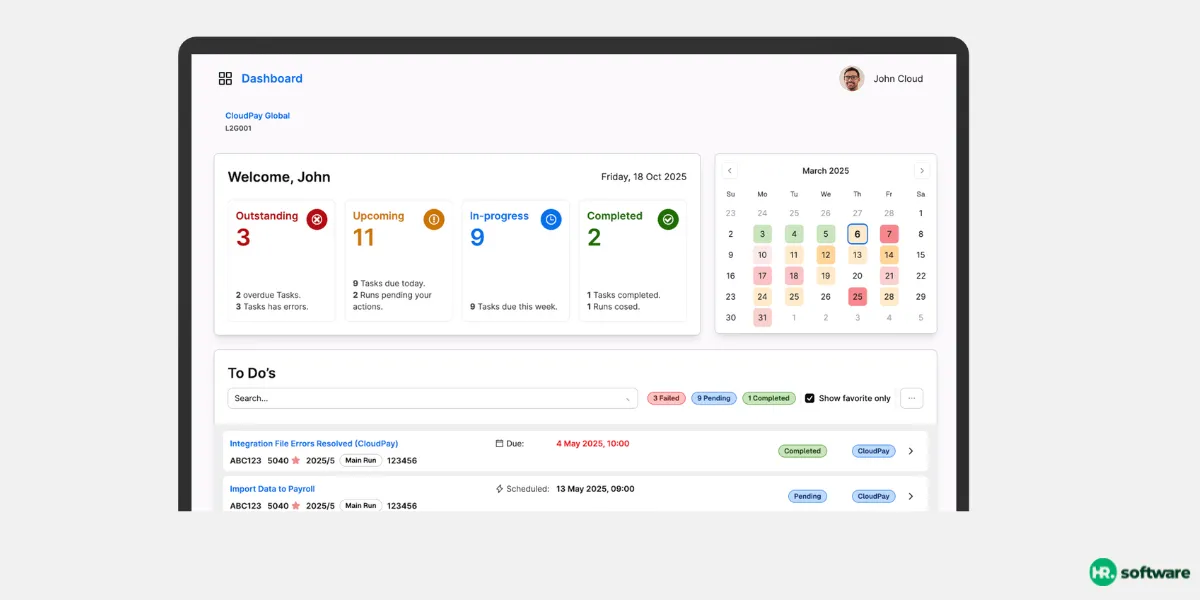
CloudPay is a cloud-based payroll platform serving mid-market and enterprise companies with a need for compliance and analytics. It integrates with leading HRIS and finance systems, ensuring smooth data flows. CloudPay focuses on automating local tax compliance, filing obligations, and audit reporting. A centralized platform, it gives organizations real-time visibility into payroll operations worldwide, making it a strong choice for compliance-heavy enterprises.
Pricing: Custom quotes, typically mid-market to enterprise. Costs vary by employee count, integrations, and regional coverage.

.webp)
Workday is a leading HRIS provider that delivers global payroll through certified regional partners. Instead of managing payroll directly in every country, Workday integrates with local payroll providers while ensuring governance, compliance, and seamless HR–payroll connectivity. Its strength lies in unifying HR and payroll into a single ecosystem with detailed audit trails and compliance reporting. Workday is best for large enterprises already invested in its HR system and seeking enterprise-grade governance.
Pricing: Enterprise-level custom contracts, often bundled with broader Workday HRIS licensing. Best suited for global enterprises with large budgets.

.webp)
Immedis, now part of UKG, positions itself as a compliance-first payroll platform with a strong focus on automation and analytics. It emphasizes real-time compliance monitoring, AI-powered alerts, and detailed tax validation checks. Designed for enterprises, Immedis provides global visibility into payroll operations, allowing finance and HR leaders to detect compliance risks proactively. With its UKG backing, the platform integrates tightly into enterprise HR systems.
Pricing: Fully custom pricing. Positioned as a premium enterprise solution, tailored for organizations managing thousands of employees globally.

.webp)
Ascender is a leading payroll provider in the Asia-Pacific region, serving multinational and regional companies with deep local compliance expertise. It partners with in-country specialists to manage statutory tax and labor obligations, social contributions, and benefit reporting. For businesses operating in APAC markets such as Japan, Australia, and Singapore, Ascender offers unmatched regional knowledge. However, its global coverage is limited compared to larger international vendors.
Pricing: Regional custom pricing. Costs vary depending on country and employee count, but are generally more competitive within APAC.

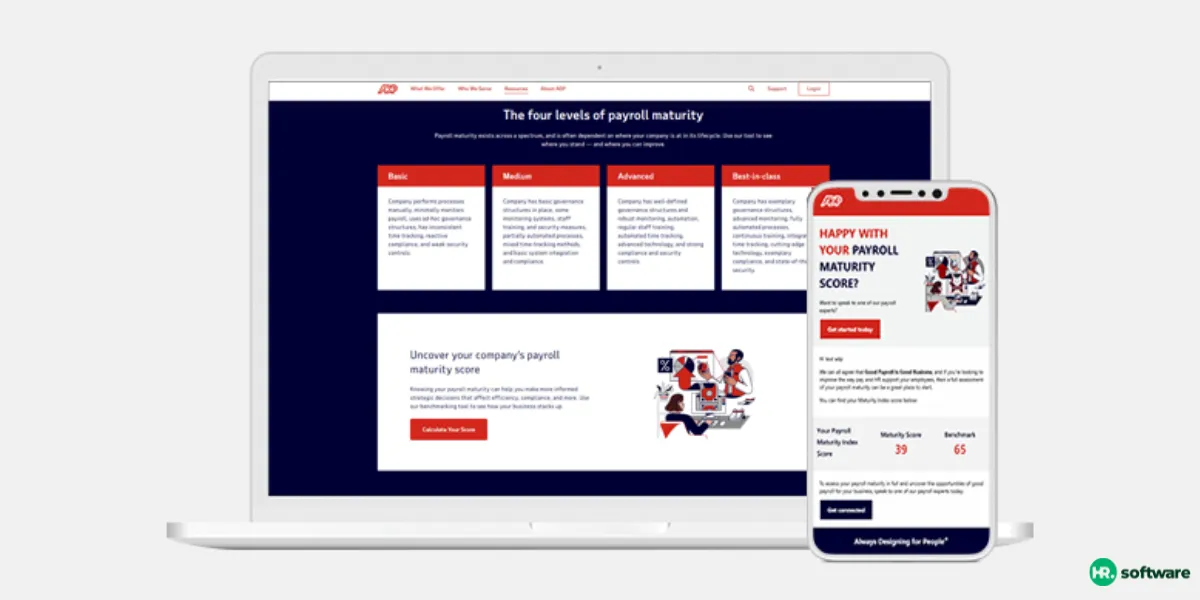
ADP GlobalView Payroll is one of the most established enterprise payroll platforms, trusted by multinational corporations across industries. With coverage spanning more than 140 countries, ADP offers a blend of robust payroll technology and in-country compliance expertise. Its platform supports complex multinational operations, enabling centralized payroll reporting while ensuring local compliance through dedicated country teams. ADP is particularly strong in industries that demand accuracy and regulatory alignment, such as financial services, healthcare, and manufacturing. While implementation may take time, its scale, brand trust, and integration capabilities make it one of the most reliable compliance-first solutions in the global payroll market.
Pricing:
ADP GlobalView Payroll operates on a custom enterprise pricing model. Pricing typically scales based on:
.webp)
.webp)
iiPay is a specialized payroll provider focusing on compliance-driven payroll delivery for mid-sized and large enterprises. It offers a centralized compliance hub, detailed reporting dashboards, and certifications like GDPR and SOC 2. iiPay integrates flexibly with HR and accounting systems, making it attractive for organizations that need compliance visibility without being tied to a large legacy provider.
Pricing: Custom pricing tailored to mid-sized and large enterprises. Generally more affordable than legacy providers but higher than SMB-focused SaaS tools.
The best compliance-focused payroll provider depends on your company’s size, markets, and risk profile. Choose a partner that covers your target countries, meets data security standards, and provides in-country expertise with robust compliance reporting.
Here are a few things you should consider when choosing a compliance-focused payroll provider:
Compliance is the deciding factor in global payroll. A single error can result in fines, penalties, or reputational damage. The right provider helps businesses manage compliance seamlessly, reduce risks, and build trust with employees and regulators alike.
Companies should evaluate their global footprint, compliance priorities, and risk tolerance before choosing a vendor. By selecting a compliance-focused partner, organizations can unlock safe, sustainable international growth.
What does compliance mean in global payroll?
Compliance refers to meeting all legal, tax, labor, and data privacy obligations when paying employees in different countries. This includes adhering to wage laws, social contributions, and statutory benefits, while also ensuring data is protected under standards like GDPR. It goes beyond paying salaries—it covers accurate reporting, timely filings, and safeguarding employee trust.
What happens if a company fails payroll compliance abroad?
The consequences can be severe. Governments may impose fines, penalties, or back payments for missed taxes or benefits. Employees may file claims, leading to lawsuits or reputational damage. In extreme cases, regulators can suspend operations or block a company from hiring in that jurisdiction. A compliance failure can quickly escalate from financial risk to a business continuity threat.
Is an EOR always more compliant than a payroll provider?
Not always. An Employer of Record (EOR) assumes legal responsibility for compliance in countries where you lack an entity, which makes it highly effective for startups or companies testing new markets. However, if you already own local entities, a payroll provider with strong compliance automation can be just as effective—sometimes at a lower cost. The choice depends on your structure and goals.
Does GDPR apply to payroll data internationally?
Yes. Any company handling employee data from the EU must comply with GDPR, regardless of where payroll processing occurs. This means payroll providers must ensure secure data handling, cross-border data transfer safeguards, and employee consent management. Beyond GDPR, many providers also maintain SOC 2 and ISO certifications, giving global companies additional layers of security assurance.